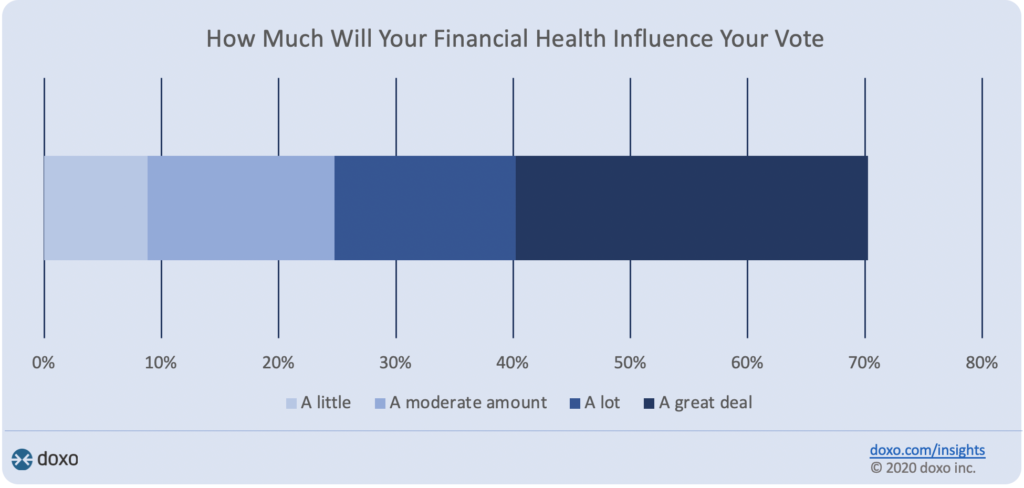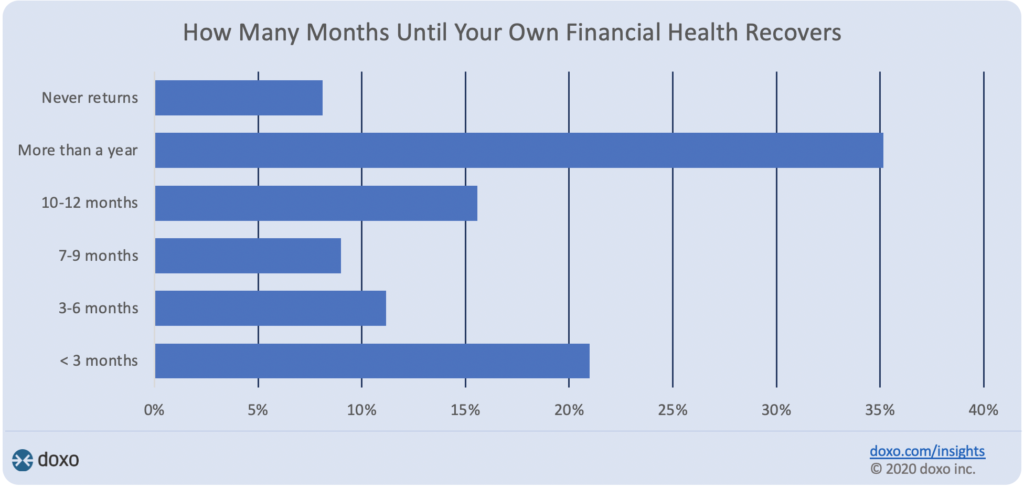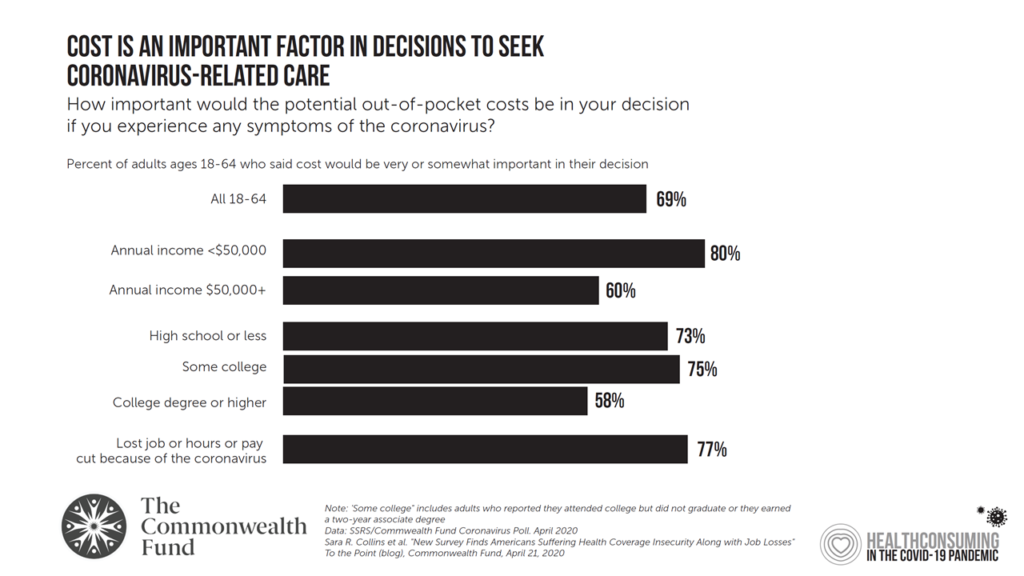Financial health is part of peoples’ overall health. As Americans approach November 3, 2020, the day of the real-time U.S. Presidential and down-ballot elections, personal home economics are front-of-mind.
 Twenty-seven days before the 2020 elections, 7 in 10 Americans say their financial health will influence their votes this year, according to the doxoINSIGHTS survey which shows personal financial health as a key voter consideration in the Presidential election.
Twenty-seven days before the 2020 elections, 7 in 10 Americans say their financial health will influence their votes this year, according to the doxoINSIGHTS survey which shows personal financial health as a key voter consideration in the Presidential election.
Doxo, a consumer payments company, conducted a survey among 1,568 U.S. bill-paying households in late September 2020. The study has a 2% margin of error.
U.S. voters facing this year’s election are dealing with a convergence of several dramatic forces shaping the body politic — physically, fiscally, mentally, emotionally, and socially.
The COVID-19 pandemic in America has combined with:
- A national economic recession and job losses
- Nearly 8 million workers losing jobs also losing their employer-sponsored health insurance, discussed in this research from The Commonwealth Fund
- The threat of a repeal of the Affordable Care Act during the public health crisis
- An epidemic of mental and emotional decline exacerbated by COVID-19 and financial stress, and
- Growing awareness of social justice inequities revealed by both COVID-19’s impacts as well as the death of George Floyd and others which have raised the specter of systemic racism in the U.S.
 The second chart shows that 35% of Americans don’t expect their own financial health to recover for more than a year, and another 8% don’t believe financial wellness will “ever” come back to them.
The second chart shows that 35% of Americans don’t expect their own financial health to recover for more than a year, and another 8% don’t believe financial wellness will “ever” come back to them.
Another 25% of Americans expect to be financially well sometime over the next 7 and 12 months.
Two-thirds of people do not believe the U.S. nationally will financially recover for over a year.
“While many Americans have benefitted from government assistance during the pandemic, the money is quickly running out,” doxo observed in data about peoples’ receipt and use of CARES Act funding.
“Combine these scenarios with one of most unprecedented presidential elections in modern history, and it is no surprise that financial health is greatly impacting how consumers are voting this year,” the report concludes.
 Health Populi’s Hot Points: The patient in the U.S. is also a key health care payor, I pointed out in my book HealthConsuming: From Health Consumer to Health Citizen.
Health Populi’s Hot Points: The patient in the U.S. is also a key health care payor, I pointed out in my book HealthConsuming: From Health Consumer to Health Citizen.
Only in America in this global pandemic have patients-as-consumers self-rationed seeking medical care due to cost — even as people felt they had symptoms of COVID-19, the Commonwealth Fund learned just months into the crisis.
Note that coronavirus costs were an issue for patients across demographics — including a consideration for 58% of Americans with college degrees.
A few weeks ago, we published Health Citizenship: How a virus opened hearts and minds.
The last chapter of HealthConsuming, published in 2019, asked whether U.S. health consumers would claim their health citizenship.
The doxo study bolsters the fact that in 2020, most Americans faced with growing health care costs in a public health crisis understand what they could gain by voting and claiming their status as full health citizens with rights to health care access…in and beyond the pandemic.
